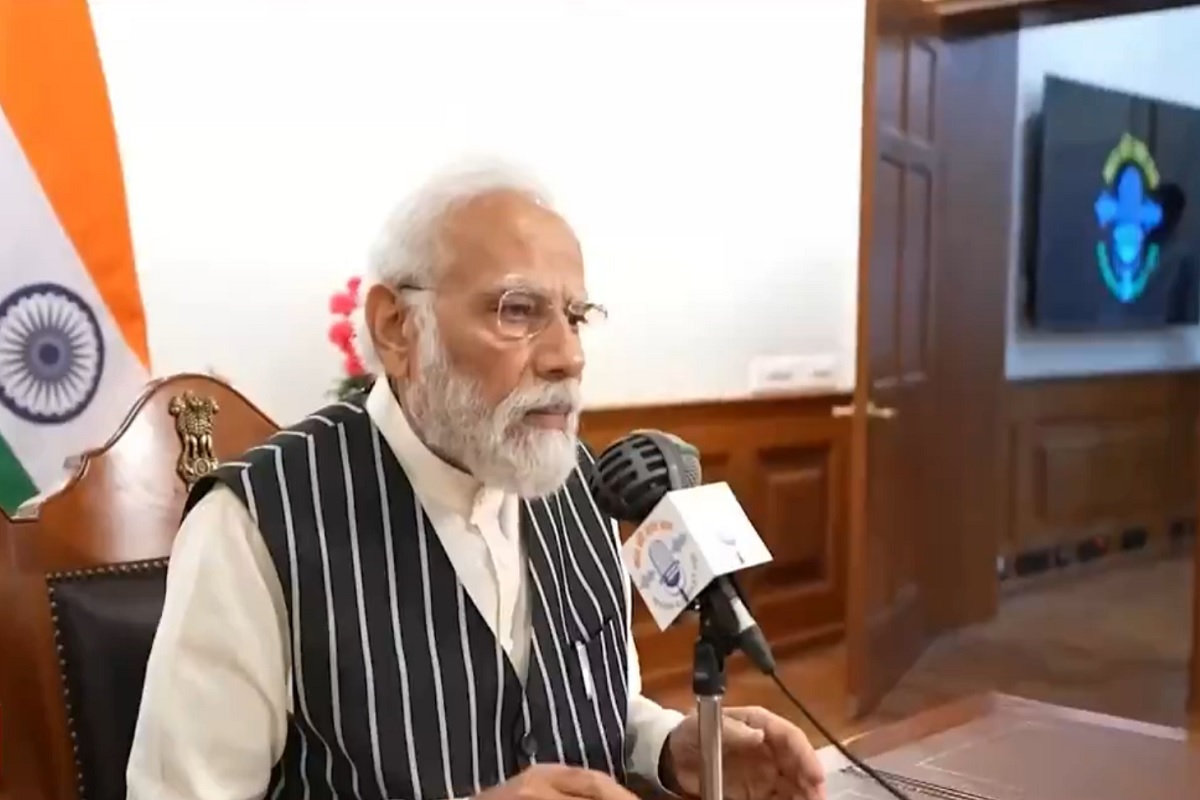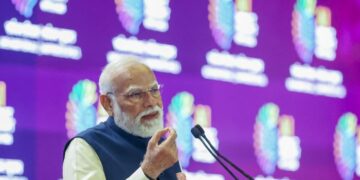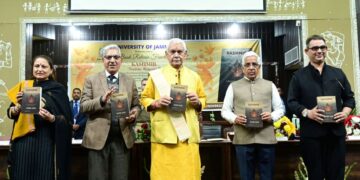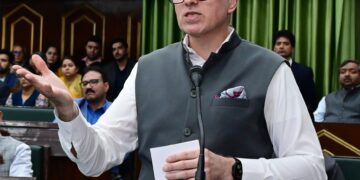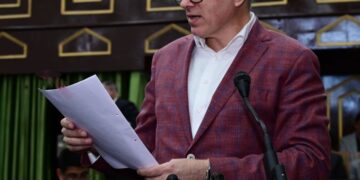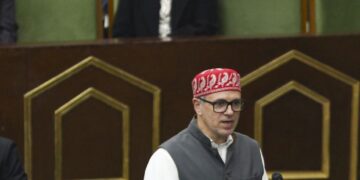New Delhi: Terrorists and their backers carried out the Pahalgam attack to destroy Kashmir again as they did not like the return of peace and prosperity, Prime Minister Narendra Modi said on Sunday and vowed the “harshest” response to the “perpetrators and conspirators”.
As the prime minister, in his monthly ‘Mann Ki Baat’ radio address, spoke of a “decisive battle” against terrorism, authorities in Jammu and Kashmir razed more houses of terrorists and rounded up their sympathisers in a stepped-up crackdown on “terror ecosystem”.
Sunday was the last day for Pakistanis having short-term visas in 12 categories to leave India and a long queue of vehicles was seen at the Attari-Wagah border crossing. As many as 537 Pakistani nationals, including nine diplomats and officials, left India in four days from the border point since April 24 after the government announced the visa revocation the previous day, officials said.
A total of 850 Indians, including 14 diplomats and officials, have returned from Pakistan through the crossing located in Punjab in the last four days. Some of the Pakistanis might have left India through airports too, the officials said, pointing out that since India does not have direct air connectivity with Pakistan, they might have left for other countries. The deadline for exiting India for those holding SAARC visas was April 26. For those carrying medical visas, the deadline is April 29.
The National Investigation Agency (NIA) formally took over the Pahalgam terrorist attack probe, registering a case in Jammu on Sunday. Several teams of the agency are involved in searching for evidence and questioning eyewitnesses, including relatives of victims, to uncover the terror conspiracy, officials said.
As the tensions between the two countries soared, the Pakistani military engaged in “unprovoked firing” along the Line of Control in the areas opposite Tutmari Gali and Rampur sectors for the third consecutive night, military sources said.
The Pakistan military was engaged in similar firing on Thursday and Friday nights as well. “Our troops responded effectively with appropriate small arms fire,” said an Indian official.
While the Pakistan military has been put on high alert following India’s promise that it will hunt down those involved in the April 22 strike, the Indian Navy on Sunday said its warships have successfully carried out multiple anti-ship firings, revalidating their readiness for long-range precision “offensive” strikes.
“Indian Navy ships undertook successful multiple anti-ship firings to revalidate and demonstrate the readiness of platforms, systems and crew for a long-range precision offensive strike,” the Indian Navy said in a brief statement.
“Indian Navy stands combat-ready, credible and future-ready in safeguarding the nation’s maritime interests anytime, anywhere, anyhow,” it said.
The Indian Navy also released videos of the live firings at sea but did not provide details like when the exercise was carried out.
The Pahalgam massacre in Kashmir was the worst terror strike on civilians in India since the 26/11 Mumbai attack.
On Sunday, Prime Minister Narendra Modi said the “perpetrators and conspirators” of the Pahalgam attack will be “served with the harshest response”.
“The whole world stands with 140 crore Indians in our fight against terrorism. I once again assure the affected families that they will get justice, and justice will be done,” Modi said in his ‘Mann ki Baat’ address.
The prime minister said the attack in the famous tourist town in Kashmir reflected the desperation and cowardice of the patrons of terrorism, a reference to Pakistan, at a time when peace was returning to the Valley.
He said there was vibrancy in its schools and colleges, construction work had gained unprecedented pace, democracy was getting stronger, the number of tourists was increasing at a record rate, people’s income was increasing, and new opportunities were being created for the youth.
Modi said, “Enemies of the country, the enemies of Jammu and Kashmir did not like that. Terrorists and the masterminds of terror want Kashmir to be destroyed again and hence they executed such a big conspiracy.”
“In this war against terrorism, the unity of the nation, the solidarity of 140 crore Indians, is our greatest strength. This very unity is the foundation of our decisive battle against terrorism,” he said.
Modi said, “I can feel that the blood of every Indian is on the boil after seeing the pictures of the terrorist attack.” The prime minister said the attack has drawn condemnation from the whole world, noting that international leaders have called him up, written letters and sent messages.

